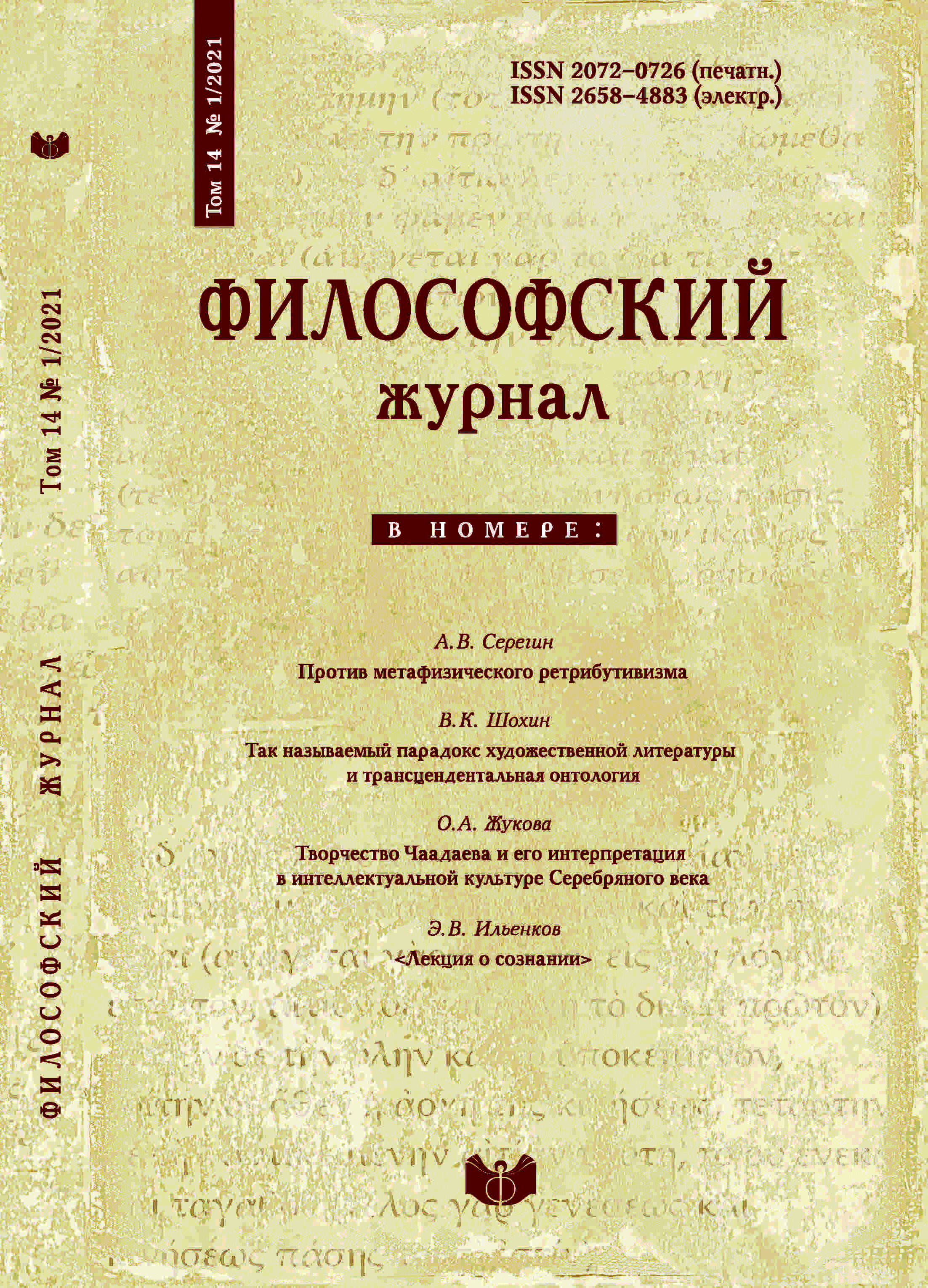Against metaphysical retributivism
DOI:
https://doi.org/10.21146/2072-0726-2021-14-1-5-19Keywords:
just punishment, moral evil, physical evil, retributivism, theodicyAbstract
The paper offers an argument against metaphysical retributivism, i.e. the belief that the existence of physical evil (suffering) can be causally explained and normatively justified by being interpreted as a just punishment for the moral evil committed by those who suffer. First, the author introduces a disjunctive distinction between the humanistic and the non-humanistic normative theories of moral good and evil. Then, he justifies his anti-retributivist thesis with regard to both of these alternatives. The humanistic theories, according to which an activity can only be morally evil due to the fact that it inflicts physical evil on other agents, logically imply that physical evil is a precondition of moral evil and, therefore, cannot just be one of its consequences. This is demonstrated with respect both to the linear (e.g. “abrahamic”) metaphysical scenarios and the circular ones (e.g. ancient or esoteric). Besides, according to these theories, the infliction of very intensive physical evil presupposed by metaphysical retributivism cannot be morally justified even if it is formally just. On the other hand, the non-humanistic normative theories logically imply that the very content of the notion of moral evil is in no way related to the notion of physical evil. However, in that case moral and physical evil are essentially heterogeneous and incommensurable. Therefore, one cannot establish a proportional correlation between them which is a necessary prerequisite for a just and morally justified retribution.






